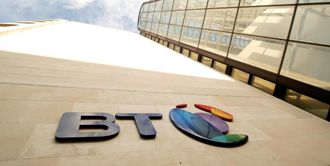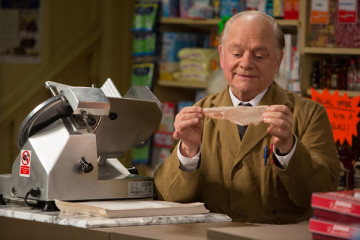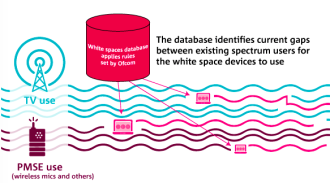 Ofcom research has revealed that the huge take-up of smartphones and tablets is transforming the traditional living room into a digital media hub. Ofcom’s Communications Market Report 2013 found that people are still coming together to watch TV in the living room, but the telly is no longer the centre of attention.
Ofcom research has revealed that the huge take-up of smartphones and tablets is transforming the traditional living room into a digital media hub. Ofcom’s Communications Market Report 2013 found that people are still coming together to watch TV in the living room, but the telly is no longer the centre of attention.
The number of UK adults who watch TV in the living room is 91 percent, up from 88 percent in 2002, but adults and kids alike now have a huge range of distractions. People are streaming videos, messaging, updating their social media status and doing a lot more, all while watching more TV than before. In fact, watching may not be the right word, as the TV now apparently provides the soundtrack for couch surfing.
More than half of adults now use smartphones, almost double the number two years ago (27 percent). Tablet ownership has more than doubled in the past year, going up from 11 percent to 24 percent The average household now has more than three types of internet enabled devices and one in five owns six or more.
So what exactly are people doing on their smart toys while “watching” TV? A quarter are “media meshing” which means they aren’t exactly watching TV, but doing something related to what’s on TV, like browsing IMDB, talking on the phone or texting about what they’re watching. Younger people are a lot more likely to use other media while watching TV (74 percent).
The other phenomenon is called “media stacking”. Half of people use their devices for completely unrelated activities while watching TV. These include smurfing the internet, social notworking and online shopping (16 percent). Women are more likely to media multitask than men, 56 percent compared to 51 percent.
However, ye olde telly is fighting back. Many people are picking up bigger TVs, with panels over 43 inches, but many households are reverting to having just one TV rather than a bunch of sets in different rooms. Tablets appear to be disrupting the traditional TV routine and smart TVs are also becoming relevant.
The growth in ownership of tablets is driving the use of second screens, and enticing people to the main TV room. More than half (56 percent) of tablet owners use their device for viewing audiovisual content and half of these do so while in the living room.
In addition, tablets are a very useful tool for entertaining and educating children. Kids of all ages love anything with a touchscreen and the vast majority of parents say the let their kids use tablets.
The transformation of the traditional living room into a multimedia hub could go even faster with superfast broadband services with speeds of over 30Mbps. However, just 17.5 percent of British homes have a superfast connection right now. People who decided to switch to superfast broadband told researchers that they have increased their levels of streaming high-definition content and started using more cloud services.
 The UK’s cloud computing market faces a competition probe over concerns that Amazon and Microsoft are ruling everything with an iron fist.
The UK’s cloud computing market faces a competition probe over concerns that Amazon and Microsoft are ruling everything with an iron fist. The dark satanic rumour mill has manufactured a hell-on-earth yarn claiming that Ofcom is set to order the Competition and Markets Authority (CMA) to probe the UK’s cloud industry over anti-competitive practices.
The dark satanic rumour mill has manufactured a hell-on-earth yarn claiming that Ofcom is set to order the Competition and Markets Authority (CMA) to probe the UK’s cloud industry over anti-competitive practices.

















